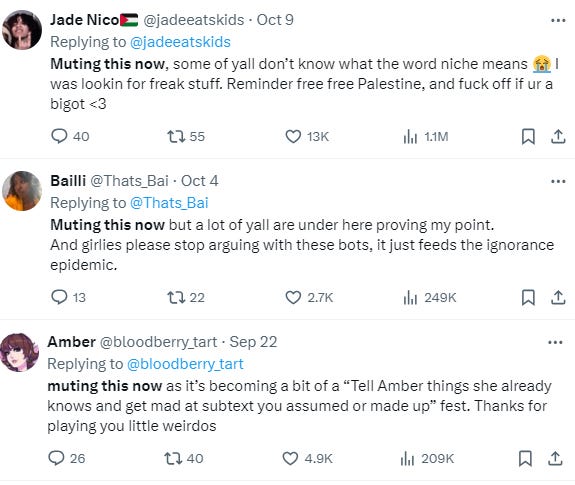Going Viral for a Bird Science Tweet : A Post-Mortem
Why I think this post went viral, what I learned, plus some stats
I wrote this tweet yesterday about how I had correctly predicted that we were going to be able to empirically decode what animals are saying with AI. It got 7 million views, and I got 2,111 new followers (went from 4k to 6k).
When I used to make flash games we had a culture of writing “post-mortems”: how much money you made, how you marketed it, how much time you spent on it. It was great because it raised the bar. It helped talented people break into the field, which lead to better quality work, more players, bigger pie for everyone. This is me trying to do the same thing for the field of: writing on the internet.
Why did this go viral?
I think it was a combination of factors:
bold claim about predicting the future
slightly offensive. The most common reaction was: “we ALREADY knew this!! Anyone who has spent time with animals know they talk!!”
even people who appreciated the science were slightly irked: “this isn’t impressive, we’ve been decoding them for a long time, you just noticed it now!!”
Basically, everyone fell into one of two camps, and this post irked both of them. I try NOT to write tweets that are “engagement bait”, but it’s easy to do it accidentally.
So, my tweet failed in that it had these flaws that distracted from what was truly novel & exciting: new empirical evidence of “bird language” decoded with AI. This is what made the thread successful initially even before it fell into this rage-bait feedback loop. It had a period of ~2 hours where people were reposting & saying “wow, this is so cool!”.
It answered “what are examples of animals talking?”
geese have different calls for when they arrive/leave/if their allies OR enemies are around
other birds seem to have different sounds to denote specific categories of danger. They had one for “eagles”, one for “snakes”, for “leopards”
It answered “how do we know this is true?”
the birds looked up when they heard the “word” for eagle, looked down for snake, and flew into the tree for leopard
they were observed to use the wrong “word/sound” as young chicks, getting more accurate as they mature
What I learned
There’s a universal feeling that going viral sucks. Everyone misinterprets your message, and thousands of strangers pile on to repeat the same complaint over & over.
I used to feel this way too, but not anymore. I think going viral is a profoundly valuable opportunity to gain insight from people completely outside your bubble, if you’re willing to do the work to understand why they’re so upset. It’s almost like a global A/B test.
Some things I learned:
There are people on twitter actively working on this
Earth Species Project (earthspecies.org) is a non-profit using AI to decode non-human communication, and interspecies.ai is working on this specifically for dogs.
Had a good chat with Nate Keating, head of product at Kaggle, about how we can accelerate science with wider community engagement
(they’ve been using community collected data through Cornell’s bird app, and opening it up to anyone on the internet to decode/analyze)
A lot of people think this will be a huge cultural shift (I’m in this camp). One person said, “this will do more for animal rights than a thousand PETA campaigns”
A lot of people were skeptical of the findings because “it’s AI, that’s known to hallucinate, right?” but once I explained to them how we know it’s true, they flipped to, “wow, this is so cool! I hope people use AI more for things like this”
It was also humbling to have many people point out that we had in fact ALREADY decoded some of these very same bird languages years ago, manually! The novel thing is having an AI model reproduce this & expand this vocabulary. So I was wrong about this being completely novel, but I was right that many research labs 6 months ago were just starting to explore this approach.
Discourse tools from the future
I think there’s a LOT more here but it’s hard to dig up manually. My dream is for a viral tweet like this, I can semantically categorize all the interactions with it, so you can see all the “pro” comments, all the “anti” comments, and subdivide it from there. Chart the discourse tree, y’know?
I don’t know if/when twitter will ever create tools like this, but we can create these tools ourselves. ALL the data, all the interactions, come through my notifications, on my computer. I can store & analyze this. This is what we’re doing with the “Community Twitter Archive” project.
just launched an app today, a “google trends” like app but for the twitter data we’ve collected so far:






helps that your pfp is a bird
thanks for writing this retrospective retrospective, i missed that this went viral for you